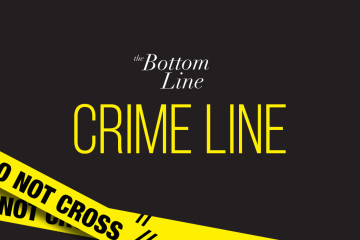FSU Holds Final Town Hall Meeting to Prepare for Election Day
Frostburg State University (FSU) hosted the last in a series of town hall meetings on the evening of Oct. 30, one week before Election Day. The series, which was intended to engage students in the upcoming election, had three sessions in October. This final session had the largest turnout of all three, with an attendance of over 60 students, faculty, and community members. As Election Day drew closer, students engaged each other on topics that were important to them.
What matters to FSU students in the upcoming elections? Two-thirds of the hour-and-a-half long session was dedicated to two topics: the decriminalization of marijuana and the reform of the justice system.
Regarding the decriminalization of marijuana, some students suggested that further decriminalization could combat misuse of the drug. Maryland is one of 31 states to have legalized marijuana for medical purposes, although efforts to decriminalize the drug for recreational use in adults have faltered in the Maryland General Assembly. Furthermore, some students suggested that the decriminalization of marijuana, as well as regulation of the drug, could lead to increased tax revenues and increased drug quality and safety. Democratic candidate for governor Ben Jealous has declared that, as governor, he would work to legalize the use of marijuana for adults and use the resultant tax revenue to fund public schooling in Maryland.
Some students also voiced their support for the release and dropping of charges for individuals convicted of marijuana-related crimes. As one student suggested, police resources might be put to better use than combating the use of marijuana. Another student raised the topic of race and its relation to criminal convictions in Maryland, particularly convictions for marijuana use. In 2013, the ACLU published a report titled The Maryland War on Marijuana in Black and White. The report used 2010 census data to show that although blacks make up about 30 percent of Maryland’s population, they account for 58 percent of marijuana possession arrests. Even though whites and blacks in the state use marijuana at roughly similar rates, blacks are more likely to be arrested for the crime.
This topic led students at the meeting into the topic of police and criminal justice reform. Videos often circulate on social media of apparent excessive use of force by police officers, and some students cited these as a call to reform the way policing is approached in the state. As one student expressed it, “the police officer is not the judge, jury, and executioner.” Tessa Brewer of the student organization Social Justice for All said that many of these instances of excessive force are due to racism and sexism. Many students said they want to see the police practice better de-escalation techniques, such as the use of stun guns and pepper spray rather than the use of firearms to resolve conflicts.
Tim McGrath, the host of the series of town hall meetings, actively encouraged the attendees to get out and vote, and he also emphasized the power of the student vote, saying, “When your generation gets older and leads us, can you make changes? Will you make changes?”
The purpose of these town hall meetings was to help potential voters become informed, and as McGrath said, “you can’t participate without being informed.”




